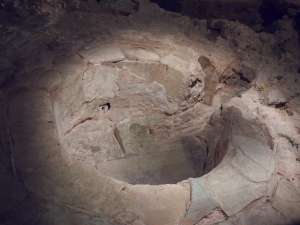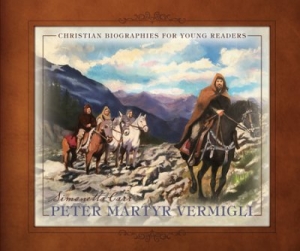My Baptist friends give two replies to the claim that they are not truly catholic. First, they appeal to their intent to be catholic. For example, in the introduction to the Second London Confession (1689) they say: “This we did the more abundantly to manifest our consent with both in all the fundamental articles of the Christian religion, as also with many others whose orthodox Confessions have been published to the world on the behalf of the Protestant in diverse nations and cities.” Continue reading →
Christian History
Can Baptists Be Catholic? (Part 2)
When the ancient church began to use the adjective catholic (universal) to describe her theology, piety, and practice, and to distinguish herself from the Gnostic, Marcionite, and Montanist cults of the second century, the best evidence is that they did not read . . . Continue reading →
Anglicanism True And False
Significant numbers of American evangelicals have come to find ancient liturgical forms meaningful, a welcome alternative to the folksy informality typical of many Protestant churches today, especially ‘big-box’ nondenominational congregations. In liturgical churches, these seekers find a stronger historical consciousness and a . . . Continue reading →
Can Baptists Be Catholic? (Part 1)
Whether Baptists can be catholic is a serious question that requires a serious answer. Before we proceed, however, we must define our terms. What is catholicity? Our English word catholic is really a Greek word, katholikos (καθολικός), borrowed by English. What does . . . Continue reading →
Ferguson On Celebrating Christmas
It’s often said that Christmas is actually a pagan holiday based on the Roman holiday of Saturnalia. But that is a bit like saying that Reformation Sunday is a pagan celebration because it coincides with Halloween. Some churches started holding a Reformation . . . Continue reading →
Blood In The Seine: French Christian Nationalism And The St. Bartholomew’s Day Massacre: Part 2
Some of what took place in Paris beginning on August 24 can be explained by sociology and social history. There were real religious and social tensions in Paris and in Roman Catholic dominated towns in 1572. Paris itself was not yet spread out. There were about 210,000 people crowded together. Continue reading →
Blood In The Seine: French Christian Nationalism And The St. Bartholomew’s Day Massacre: Part 1
On August 22, 1572, Gaspard Comte de Coligny (1519–72), Admiral of France, bent to adjust his shoe or perhaps to open a letter. That unexpected movement saved his life. The bullet, fired by Charles de Louviers (d. 1583) from an upstairs window . . . Continue reading →
Prove It
Firstly, the Old Testament (OT) church functioned as a state church grounded in theocratic model of ancient Israel, where God’s Word intertwined religious and civil governance. This is evidenced through the Mosaic Law. There, the church and state were twain made one. . . . Continue reading →
Warfield’s Fist-Fight
Princeton College alumni who remembered Benjamin Breckinridge Warfield’s student days at Princeton recall that on November 6, 1870, the young Warfield and a certain James Steen, “distinguished themselves by indulging in a little Sunday fight in front of the chapel after Dr. . . . Continue reading →
Bartholomaeus Ziegenbalg: The Pioneer-Protestant Missionary
In the wake of the Counter-Reformation and the increasing spread of the Jesuit missions movement, the King of Denmark, Fredrick IV (1671–1730), responded by launching the first Protestant mission. Franz Julius Lutkens, the chaplain to the king, founded the Danish Royal Mission . . . Continue reading →
Polycarp Vs. The Christian Nationalists
The Christian Nationalists are proposing an American Revolution. Some of them want, in place of free churches, voluntarily attended by free Americans, to institute a federal church, directly contrary to the First Amendment of the Constitution—”Congress shall make no law respecting an . . . Continue reading →
Did Jesus Really Turn Water Into Wine?
The account of Jesus turning water into wine at the wedding of Cana is a well-known story from the Gospel of John. When commenting upon this passage, many focus on the exceptional quality of the wine that Jesus produced, while others prefer . . . Continue reading →
The Dispute of Tirano and the Trial of Calvin’s Orthodoxy
In the eventful sixteenth century, few people took notice of a court trial in a small town on the Italian side of the Alps. And yet, the stakes were high. It all started on May 1, 1595, when Simone Cabasso, parish priest . . . Continue reading →
Turretin Was A Devoted Churchman
Turretin took his ministry seriously, refusing an appointment to the Chair of Philosophy at the Academy, since his pastorate was taking all of his time. In 1652, however, the church in Lyon repeated their request. To convince Turretin to answer their call, . . . Continue reading →
New Podcast: Kids Talk Church History
Simonetta Carr sent this to us to share with you. Kids Talk Church History is a new podcast from our friends at the Alliance of Confessing Evangelicals. It is hosted by kids of various ages. This episode focuses on the persecution of . . . Continue reading →
Heidelcast 203: A Christmas Story (With A Santa Clause)
We’re interrupting our series on the Apostles’ Creed to talk about Christmas. Usually at this time of year I post or repost some of the essays on the Heidelblog about Christmas but this year I thought it might be useful to talk . . . Continue reading →
Heidelcast 193: Taking Calls On Christian Platonism And Covid-19 Restrictions
We are taking a break from the series, What Must A Christian Believe to take some calls and answer some questions. The first question comes from Deborah in Chicago who asks about the trend among evangelicals to talk about “Christian Platonism.” What is . . . Continue reading →
Audio: With Bill Feltner (Pilgrim Radio) On Why So Many Denominations? (pt 2)
It is always good to talk with Bill Feltner, host of His People on the Pilgrim Radio Network (covering Northern California, Nevada, and Wyoming). Recently Bill called to ask the question: why are there so many church denominations? It is a big . . . Continue reading →
New: Peter Martyr Vermigli For Children
In our age of screens (phones, tablets, computers, watches etc) it is counter-intuitive but nonetheless true to say that books are more important than they have been for a long time. They are more important precisely because our culture is drifting away . . . Continue reading →








